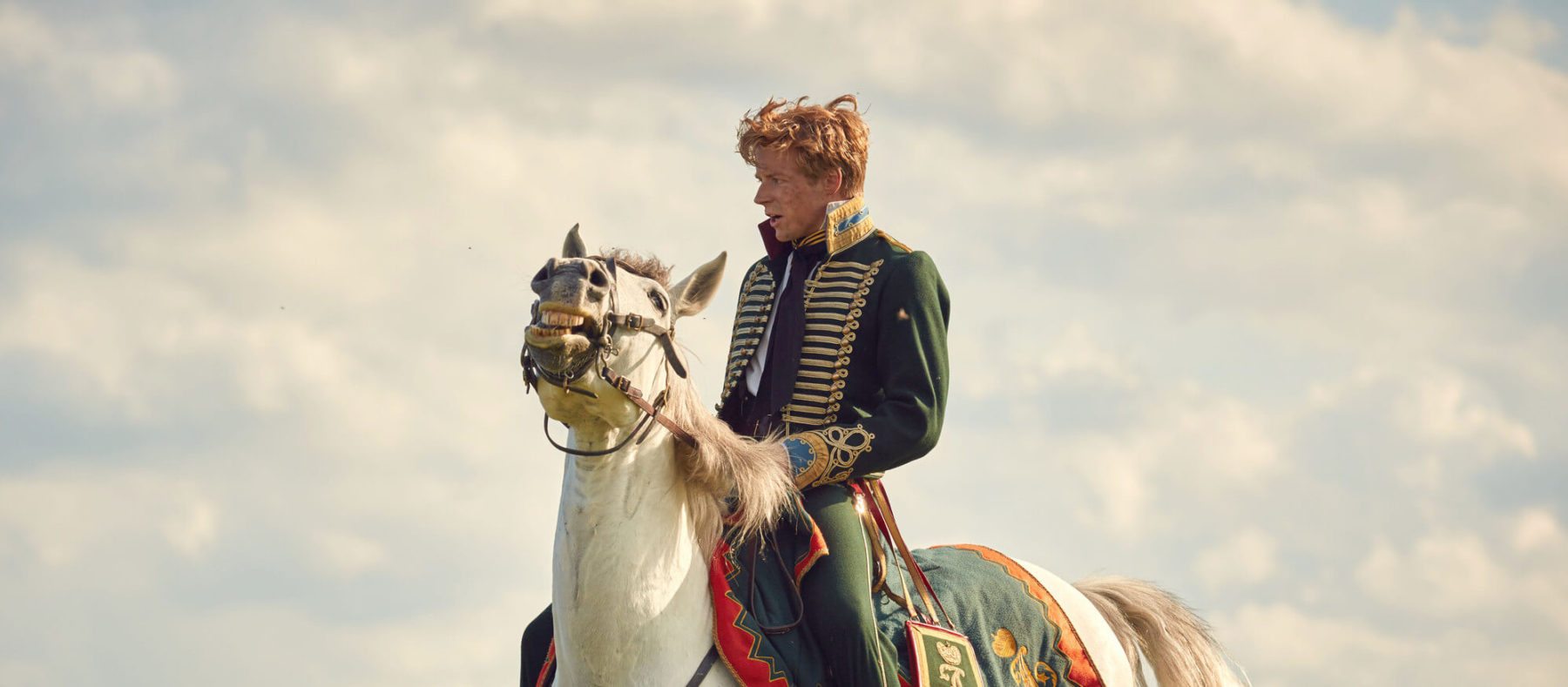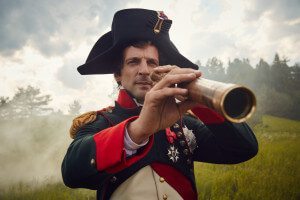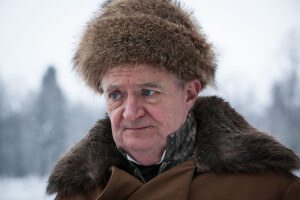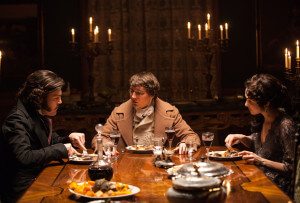BBC War and Peace: Episode 2
[dropcap]L[/dropcap]ast week’s episode of War and Peace was remarkably smooth and well-structured, but I was still surprised to find that I can already remember the names of most of the characters! This is an achievement in itself for the writer and director, who must have agonised over the best way of dealing with the crucial first episode; the trick is to “set the scene” without making it obvious that this is what you are doing.
This week’s episode, free from such a constraint, propelled several storylines forward at a slightly dizzying pace.
A tense meeting between Andrei and Nikolai comes after Nikolai’s loss of combat innocence (sadly not accompanied by the loss of his propensity to boast), and just before Andrei nearly loses his life. The Tsar orders a foolish offensive against the French army, and Andrei is swiftly (and apparently fatally) bayoneted, leaving him bloodily supine as he gazes up at the sky.
The battle itself is gorgeously done. The only disappointment here is that Napoleon (Mathieu Kassovitz) has so far had only a few back-of-the-head shots, and a couple of one-word lines; presumably they’re saving him for later.
The news of Andrei’s “death” travels home quickly, and his father’s reaction is genuinely affecting. Jim Broadbent portrays Bolkonsky as the archetypal repressed aristocrat, who visibly struggles to fight off those pesky and intruding emotions. His is the best acting performance so far.
Bolkonsky is also involved in a touching and amusing side-plot; Count Kuragin shows up at the Bolkonsky household, intending to pair up his son, Anatole (Callum Turner), with Bolkonsky’s daughter, Marya (Jessie Buckley).
The tragedy that engulfs the house is lightly contrasted with this Austen-esque courtship sequence; Bolkonsky doesn’t want his daughter to leave him (but vigorously denies this), Kuragin is even more two-faced than he was last week, and ultimately Marya catches Anatole with the French governess.
As viewers, we are not surprised, however, when Andrei later turns up at the family home, alive, well, and just in time to see his wife die in childbirth. Wherever he goes, Andrei cannot escape blood and anguish.
I was a little disappointed that the reunion scene between Bolkonsky and son was not shown; perhaps the writers decided that this would be stretching the sentimentality quota too much.
Pierre continues to amaze; his naivety when it comes to matters of the heart blinds him to his wife Helene’s affair with the “ruffian” Dolokhov (Tom Burke). He still can’t quite reconcile his revolutionary theories with the fact that he is now a wealthy Count. I hope that this ideological tension is explored further, though he already shows signs of backtracking: he no longer thinks that Napoleon is a great man.
Several commentators have perhaps rightly pointed out that this series feels a little too English, but the final scene of the episode is unquestionably Russian: Pierre challenges Dolokhov to a duel.
Presumably this duel will happen in next week’s episode, which airs Sunday 17 January. Overall, the pace is still solid, but there are only four hours of the series left, and with a worrying amount of pages still to be squeezed in, this could be cause for concern.




Comments